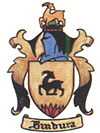Bindura
| Bindura | ||
|---|---|---|
| ||
 Bindura | ||
| Coordinates: 17°18′S 31°20′E / 17.300°S 31.333°ECoordinates: 17°18′S 31°20′E / 17.300°S 31.333°E | ||
| Country | Zimbabwe | |
| Province | Mashonaland Central | |
| District | Bindura District | |
| Established | 1901 | |
| Elevation | 1,070 m (3,510 ft) | |
| Population (2012) | ||
| • Total | 46,275 | |
| Time zone | CAT (UTC+2) | |
| • Summer (DST) | CEST (UTC+1) | |
Bindura is a town in the province of Mashonaland Central, Zimbabwe. It is located in the Mazowe Valley about 88 km north-east of Harare. According to the 1982 Population Census, the town had a population of 18,243. This rose to 21,167 in the 1992 census. It is the administrative capital of the province. Bindura Nickel, a subsidiary of Mwana Africa plc, mines nickel, copper and cobalt in the area and operates a smelter refinery just south of the town. Cotton and maize is grown intensely in the region. The first basic school in Bindura opened in 1912.
The school was later called Bindura Junior School and had to 'Houses' for the Boarders. These were called Kimberley and Phoenix, named after the working gold mines in the Town.
The School excelled in academics, had a Young Farmers Club and offered sporting facilities for cricket, rugby, tennis and swimming at the Town Swimming Pool, called the 'Baths'.
The small towm was a haven of neighbouliness, farmers, merchants, dealers, salesmen, hoteliers, bankers and lawyers all mingled freely. Bindura had a large Greek community that owned most the retail outlets in Town. These include the Chemist, Baker, Grocer, 'Native' Stores, Petrol Station and Dress Shop.
Thurlows was a wealthy local businessman, not a Greek but British, who owned the largest eneral Store and Grocers. He also owned the adjoining Hotel, where we all spend many a pleasnt hour on the varanda with friends or dancing on the 'sprung' dance floor.
Holidays such as Christmas, Easter, Harvest Festival and New Years would be celebrated there. It wa salso the 20 minute 'interval' from Frickers Cinema, a 'bioscope' across the street, where a 'flick' would be shown every Saturday. Ma Fricker also owned and rented out Frickers Flats. These were 'townhouse' type flats and were across the small park behind the 'Bioscope' on a tree lined avenue.
The Town Hall and Magistrates Court were on the Main Street, as was the Masonic Lodge and Casa Mia Cafe'. Stratfold's Hardware supplied tools, hardware, feed, veterinary supplies and housewares to the District.
The town also boasted a very fine Hospital, which in the 1960 was run by Dr. McDowell and his able staff. There was a large wing for Non-whites at that time too.
The railway line ran from Salisbury (Harare) through Bindura and on to Shamva. Halway between these two towns was a station called Arundel, where all the surrounding farmers would bring their wares; cotton, maize, fruit, vegetables and livestock.
The farmers about Bindura were extremely productive, growing high quality Virginia tobacco, that was later sold at the Tobacco Auctions in Salisbury. The auctioneers were colorful, vocal and amusing people and hard working.
The Mazowe river, that ran around Bindura and through the northeastern perimeter, was a perrenial river and supplied water for livestock, human consumption, dams and irrigation throughout the year.
Bindura also had a very active Sports Club, that offered the townsfolk entertainment, refreshment, dancing and a meeting place. There were stables for the polo ponies, a golf course and cricket/ield.
Bindura was originally named Kimberley Reefs after the gold mine which was opened in 1901, and changed to Bindura in 1913 when the railway arrived. Bindura is probably an Anglicised version of the Shona Phrase, pindura mhuka, meaning "turn the game".[citation needed] The word bindura also means "a bitch in season".
| ||||||||||||||
